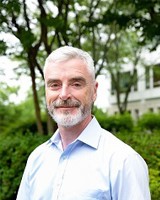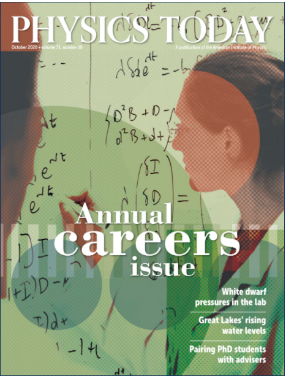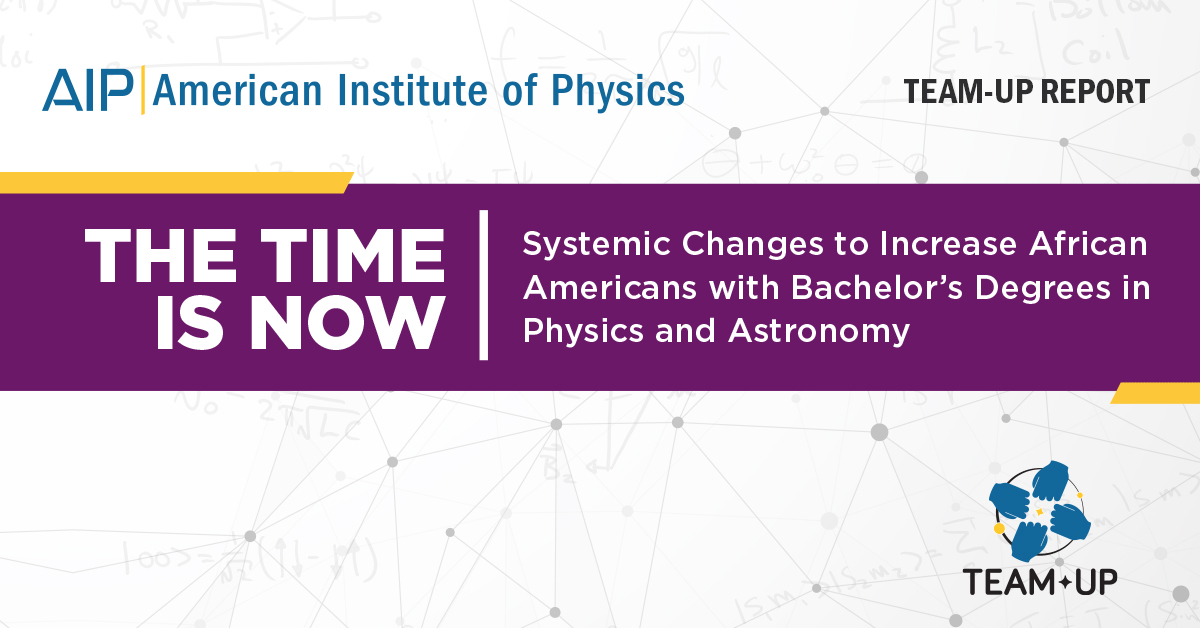Annual Message to Members of AIP Member Societies
Michael Moloney AIP - American Institute of Physics
When I became the CEO of the American Institute of Physics (AIP) in March 2018, it was such an honor to be entrusted to lead this organization with its rich 90-year history of supporting our physical sciences community. Over the decades AIP has pursued its mission through efforts such as producing your federation’s magazine Physics Today, stewarding of our scientific heritage in the collections of the Niels Bohr Library & Archives and the scholarly work of the Center for History of Physics, advancing science policy with FYI Science Policy News and our advocacy, deepening of our understanding of our community through the survey work of the Statistical Research Center, and developing future leaders in the Society of Physics Students (SPS).
 Now we are looking ahead to AIP’s future. How do we evolve as we head toward our centenary? Our priority will remain meeting our mission to advance, promote, and serve the physical sciences for the benefit of humanity. But in doing so, how can we strengthen the heart of AIP’s success, our federation of scientific societies and associations, so that we can better leverage our combined reach and influence? What possibilities exist for AIP to develop as an institute to support our disciplines by advancing issues we all care about — such as diversity, equity, belonging, and accessibility? These kinds of questions have driven the formulation of AIP’s Strategic Framework.
Now we are looking ahead to AIP’s future. How do we evolve as we head toward our centenary? Our priority will remain meeting our mission to advance, promote, and serve the physical sciences for the benefit of humanity. But in doing so, how can we strengthen the heart of AIP’s success, our federation of scientific societies and associations, so that we can better leverage our combined reach and influence? What possibilities exist for AIP to develop as an institute to support our disciplines by advancing issues we all care about — such as diversity, equity, belonging, and accessibility? These kinds of questions have driven the formulation of AIP’s Strategic Framework.
In writing to you now I want to share some of the recent advancements we have made at AIP that illustrate this Strategic Framework in action, even in the midst of a global pandemic. These highlights demonstrate how AIP’s federation of Member Societies propels our fields forward for everyone.
Science and COVID-19
In April, AIP convened a panel of experts to discuss and identify the impacts of the COVID-19 pandemic on the physical sciences and forecast its effects. The panel of leaders from across our communities, chaired by Julia Phillips, Executive Emeritus at Sandia National Laboratories, released its report in July. It lays out challenges and opportunities the pandemic poses to our community — from those that impact undergraduate students to those that affect national research facilities — and to key aspects of scientific life — such as the conduct of research and efforts to make the physical sciences more inclusive. The findings were shared broadly, including Congressional staff and administration leaders.
As all of our Member Societies have transformed their planned in-person meetings to virtual, we realize the time is ripe for envisioning what the future of convening communities of practice can look like — even post-pandemic. We are assembling a group of experts to discuss how we can meet better the shifting demands and leverage opportunities brought to light by our current situation. Our findings will be released in a letter report in Q1 2021.
 Even as we prepare for the future, AIP is working to ensure current services are available for the physical science community during the pandemic. As the world began to quarantine in the spring, AIP worked with each Member Society to make sure that delivery of the federation’s magazine Physics Today continued on-time and uninterrupted. AIP’s Society of Physics Students began an emergency grants program to help financially struggling undergraduates stay in school, and AIP’s FYI Science Policy News team initiated a tracker for coronavirus response appropriations and proposals for science agencies. SPS also transitioned its annual student internship program into a successful, and by all reports rewarding, virtual experience for students and mentors alike. Our series of Trimble lectures on the history of our sciences has also transitioned online and each lecture, now recorded, is available online.
Even as we prepare for the future, AIP is working to ensure current services are available for the physical science community during the pandemic. As the world began to quarantine in the spring, AIP worked with each Member Society to make sure that delivery of the federation’s magazine Physics Today continued on-time and uninterrupted. AIP’s Society of Physics Students began an emergency grants program to help financially struggling undergraduates stay in school, and AIP’s FYI Science Policy News team initiated a tracker for coronavirus response appropriations and proposals for science agencies. SPS also transitioned its annual student internship program into a successful, and by all reports rewarding, virtual experience for students and mentors alike. Our series of Trimble lectures on the history of our sciences has also transitioned online and each lecture, now recorded, is available online.
Diversity, Equity & Inclusion (DEI) and Acknowledging Racial Injustices
The AIP National Task Force to  Elevate African American Representation in Undergraduate Physics & Astronomy (TEAM-UP) released its report in early 2020, following a two-year study that investigated the persistent underrepresentation of African Americans in undergraduate physics and astronomy. TEAM-UP’s recommendations include those focused on promoting sweeping cultural change and robust support structures to ensure equity and belonging in our fields moving forward.
Elevate African American Representation in Undergraduate Physics & Astronomy (TEAM-UP) released its report in early 2020, following a two-year study that investigated the persistent underrepresentation of African Americans in undergraduate physics and astronomy. TEAM-UP’s recommendations include those focused on promoting sweeping cultural change and robust support structures to ensure equity and belonging in our fields moving forward.
With help from the Heising-Simons Foundation, AIP is organizing workshops to engage with and develop guidance for physics and astronomy departments to implement TEAM-UP recommendations, with the goal of increasing African American bachelor's degrees in their programs. AIP also is working with its Member Societies on a study of the feasibility of raising a large endowment, as recommended in the TEAM-UP report, to support African American students’ success.
To emphasize AIP’s commitment to strengthening the physical sciences community so that all peoples are represented and experience equitable opportunities to contribute to our body of knowledge, we have hired Dr. Taharee Jackson as our first Diversity, Equity, and Belonging Officer. Dr. Jackson will help us transform our current efforts into a broad strategic federation-wide response to the inequities faced by underrepresented, minoritized, and differently abled students, faculty, researchers, and others in our physical sciences community.
AIP’s Board of Directors established a special $200,000 Diversity Action Fund, to facilitate swift action by AIP’s Member Societies and the National Society of Black Physicists, an AIP Affiliated Society, in response to racial injustices. Member Society efforts are focused on developing or enhancing programs and activities aimed at improving DEI within their membership and stakeholder communities. AAS was awarded a grant to initiate a program aimed at reducing the effects of financial scarcity on black, indigenous, and other marginalized students (BIPoC) students by offering microgrants to help with graduate school application fees, virtual conference registration, or research materials such as textbooks.
Diversity, equity, inclusion, belonging, and accessibility are fundamental pillars of AIP’s Strategic Framework, and I’m proud that we’ve made progress on this front in 2020. I look forward to what the future holds for AIP as we embark on our journey of transformation toward the vision of AIP-2025.
Thank you for continuing all that you do and bring to our fields, each and every day.
— Michael H. Moloney, PhD
Chief Executive Officer
American Institute of Physics

